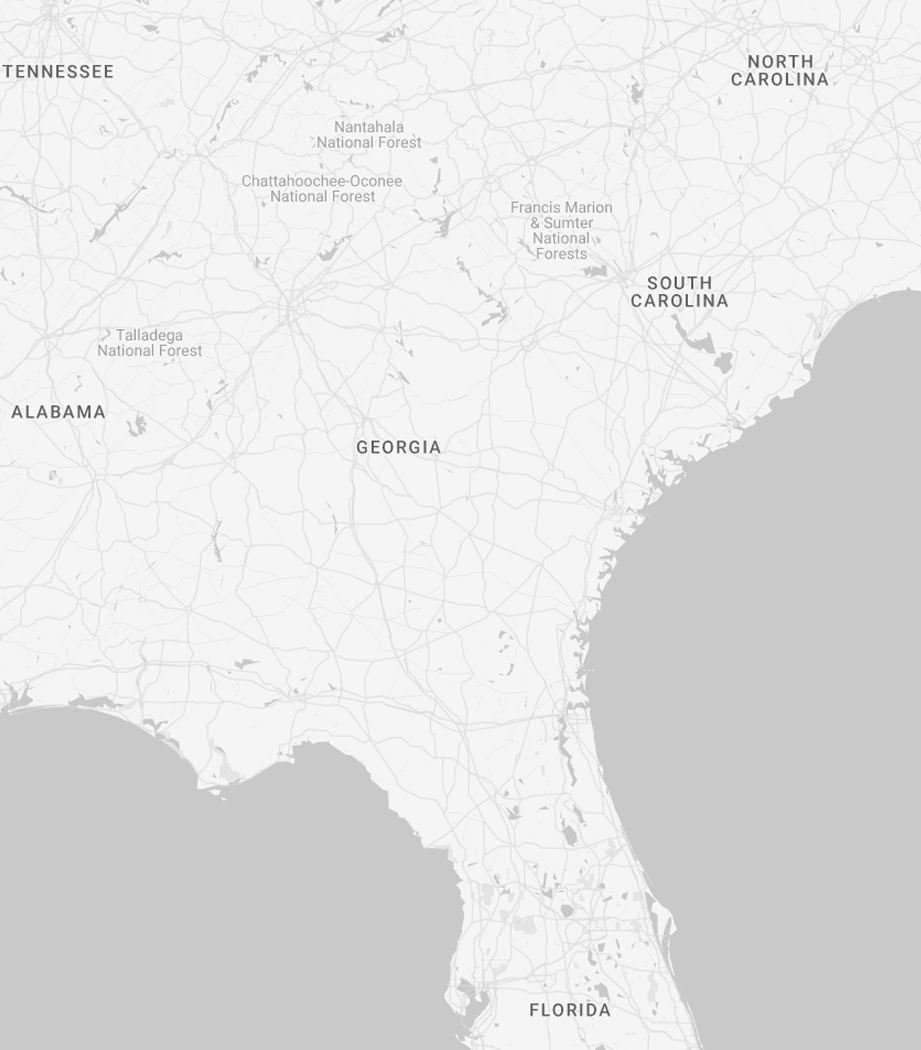Industrial settings demand a level of durability and resilience from the materials used, and paint is no exception. A well-applied coat of paint not only enhances the aesthetic appeal of industrial structures but also provides crucial protection against various environmental factors. However, even the most carefully applied paint can face challenges over time. In this comprehensive guide, we delve into the paint problems that can be effectively fixed by a professional industrial painter.
The Importance of Industrial Painting
Industrial painting goes beyond aesthetics; it is a critical aspect of maintaining and prolonging the life of structures in harsh environments. The protective role of paint in industrial settings cannot be overstated, as it acts as a barrier against corrosion, rust, and other forms of deterioration.
Common Paint Problems in Industrial Settings
Before exploring the solutions, it’s essential to understand the common paint problems that industrial structures encounter. From peeling paint to fading colors, each issue requires a unique approach for effective resolution.
Peeling Paint
Causes of Peeling Paint
Surface Preparation Issues
Peeling often stems from inadequate surface preparation. Insufficient cleaning or improper priming can lead to poor adhesion, resulting in the paint peeling away from the surface.
Moisture and Humidity
Excessive moisture and humidity are prime contributors to peeling. When moisture penetrates the substrate, it undermines the bond between the paint and the surface, leading to unsightly peeling.
Professional Solutions
Abrasive Blasting Techniques
Professional industrial painters employ abrasive blasting methods to ensure thorough surface preparation. This process removes contaminants and creates an ideal surface for paint adhesion, reducing the risk of peeling.
Moisture Barrier Coatings
To combat moisture-related issues, industrial painters apply moisture barrier coatings. These specialized coatings act as a shield, preventing moisture infiltration and preserving the integrity of the paint.

Blistering
Understanding Blistering in Industrial Painting
Blistering occurs when pockets of air or moisture become trapped beneath the paint film, causing bubbles to form on the surface. This issue not only compromises aesthetics but also poses a threat to the paint’s longevity.
Remedies by Professional Painters
Identifying Root Causes
Professional painters conduct a thorough investigation to identify the root causes of blistering. Whether it’s inadequate surface inspection or improper paint application, addressing these issues is crucial for a lasting solution.
Proper Surface Inspection
To prevent blistering, professional painters emphasize meticulous surface inspection. Identifying imperfections and addressing them before painting ensures a smooth and bubble-free finish.
Chalking
Exploring Chalking in Industrial Environments
Chalking refers to the formation of a powdery residue on the paint surface. This common issue can result from prolonged exposure to the sun’s ultraviolet (UV) rays or the use of low-quality paints.
Expert Approaches to Resolve Chalking
High-Quality Primers
Professional industrial painters prioritize the use of high-quality primers. A durable primer creates a strong foundation, reducing the likelihood of chalking and enhancing the overall paint performance.
UV-Resistant Coatings
To counter the effects of UV exposure, industrial painters apply UV-resistant coatings. These coatings act as a shield, preventing chalking and preserving the vibrancy of the paint color.
Rust and Corrosion
The Impact of Rust on Industrial Structures
Rust and corrosion pose significant threats to the structural integrity of industrial facilities. The presence of rust not only compromises the appearance but also weakens the materials over time.
Techniques to Combat Rust by Professionals
Rust Inhibitors
Professional industrial painters incorporate rust inhibitors into their paint formulations. These inhibitors create a protective barrier, preventing the formation and spread of rust on metal surfaces.
Abrasion-Resistant Coatings
In high-wear areas, where abrasion is a concern, industrial painters apply abrasion-resistant coatings. These coatings provide an additional layer of defense against rust and corrosion, ensuring long-term protection.
Fading Colors
Causes of Fading in Industrial Paint
UV Exposure
Unprotected exposure to UV rays can cause colors to fade over time. This is a common challenge in outdoor industrial settings where structures are constantly exposed to sunlight.
Inferior Paint Quality
The use of subpar paint products is another cause of color fading. Professional industrial painters address this issue by selecting high-quality, fade-resistant paints.
Professional Color Restoration
UV-Resistant Paints
To counter the impact of UV rays, industrial painters opt for UV-resistant paints. These specialized paints maintain color vibrancy even in the face of prolonged sun exposure.
Color Matching Expertise
Professional painters possess color matching expertise, ensuring that any touch-ups or repaints seamlessly blend with the existing color scheme. This attention to detail prevents unsightly variations in color.
Poor Adhesion
Understanding Adhesion Issues in Industrial Painting
Causes of Poor Adhesion
Poor adhesion can result from various factors, including inadequate surface preparation, incompatible primers, or improper curing times.
Consequences of Poor Adhesion
Insufficient adhesion compromises the paint’s durability and longevity, leading to issues such as peeling, cracking, and flaking.
Professional Fixes
Surface Preparation Techniques
Professional industrial painters prioritize meticulous surface preparation. Proper cleaning, priming, and ensuring an optimal painting environment are crucial steps in promoting strong adhesion.
High-Quality Adhesive Primers
The use of high-quality adhesive primers enhances the bond between the paint and the substrate. This proactive measure prevents adhesion issues, ensuring a durable and long-lasting finish.
Cracking and Flaking
Causes of Cracking and Flaking
Extreme Temperature Variations
Fluctuations in temperature can cause materials to expand and contract, leading to the development of cracks and flakes in the paint film.

Poor Paint Application
Incorrect paint application techniques, such as applying an excessively thick coat, can result in uneven drying and eventual cracking.
Professional Resolutions
Climate-Adaptive Paints
Professional painters opt for climate-adaptive paints that can withstand temperature variations. These paints remain flexible, preventing cracking and flaking in challenging environmental conditions.
Expert Application Techniques
Precision in paint application is crucial to preventing cracking and flaking. Professional painters employ techniques such as thin layering and proper curing times to ensure a uniform and resilient finish.
Uneven Coating
Problems Causing Uneven Coating
Inadequate Surface Inspection
Uneven coating often results from overlooking imperfections during the surface inspection phase. Professional painters emphasize thorough inspections to identify and address surface irregularities.
Incorrect Application Techniques
Inconsistent application techniques, such as uneven spraying or rolling, contribute to uneven coating. Professional painters employ advanced application methods to achieve a uniform and flawless finish.
Precision Solutions by Professional Painters
Thorough Surface Preparation
Meticulous surface preparation is the foundation of an even coating. Professional painters address surface imperfections, ensuring a smooth canvas for paint application.
Advanced Application Methods
Utilizing state-of-the-art application equipment and techniques, professional painters achieve precise and even coatings. This level of precision enhances the visual appeal and longevity of the paint job.
Staining
Identifying Stains in Industrial Painting
Stains on painted surfaces can result from various sources, including water leaks, chemical spills, or environmental pollutants.
Professional Stain Removal Techniques
Stain-Blocking Primers
Professional industrial painters apply stain-blocking primers to prevent the migration of stains through the paint film. These primers create a barrier, preserving the aesthetics of the painted surface.
Specialized Cleaning Processes
For stubborn stains, professional painters employ specialized cleaning processes. These processes are tailored to the type of stain, ensuring effective removal without causing damage to the underlying paint.
Overspray Issues
The Challenge of Overspray in Industrial Settings
Overspray occurs when paint particles drift beyond the intended painting area, leading to unwanted deposits on adjacent surfaces.
Expert Overspray Mitigation
Precision Masking Techniques
Professional painters use precision masking techniques to isolate the painting area, preventing overspray from reaching unintended surfaces. This meticulous approach ensures a clean and professional finish.
Advanced Spray Equipment
Investing in advanced spray equipment allows professional painters to control the spray pattern, minimizing overspray. This technology ensures efficient and precise paint application while reducing the risk of unintended deposits.
Paint Bubbling
Causes of Bubbling in Industrial Paint
Moisture Trapped Beneath the Paint
Bubbling occurs when moisture becomes trapped beneath the paint film, causing blister-like formations on the surface.
Incorrect Paint Mixing
Inadequate mixing of paint components can result in uneven drying and the formation of bubbles. Professional painters adhere to precise mixing protocols to prevent this issue.
Professional Approaches to Eliminate Bubbling
Moisture-Resistant Coatings
To address bubbling caused by moisture, industrial painters apply moisture-resistant coatings. These coatings act as a barrier, preventing moisture infiltration and subsequent bubbling.
Proper Paint Mixing Protocols
Professional painters follow strict paint mixing protocols to ensure a uniform and well-mixed paint solution. This attention to detail eliminates the risk of uneven drying and bubbling.
Conclusion
In conclusion, for all your industrial painting needs, Bravo Painting stands as a reliable and professional solution. Their commitment to quality, adherence to industry standards, and utilization of advanced technologies make them a go-to choice. With a focus on clear communication and proactive solutions, Bravo Painting ensures the longevity and aesthetic appeal of industrial structures. Explore their services at Bravo Painting and experience the difference of expert industrial painting.
FAQs
Why is industrial painting important?
Industrial painting is crucial for maintaining and prolonging the life of structures in harsh environments. It acts as a protective barrier against corrosion, rust, and other forms of deterioration.
What are some common paint problems in industrial settings?
Common paint problems include peeling, blistering, chalking, rust, fading colors, poor adhesion, cracking, flaking, uneven coating, staining, overspray, and paint bubbling.
What causes peeling paint in industrial settings?
Peeling often results from inadequate surface preparation, including insufficient cleaning or improper priming. Moisture and humidity can also contribute to peeling by undermining the bond between the paint and the surface.
How do professional industrial painters address peeling paint?
Professional painters use abrasive blasting techniques for thorough surface preparation and apply moisture barrier coatings to prevent moisture-related issues, ensuring a durable and long-lasting finish.
What is blistering, and how is it addressed by professionals?
Blistering occurs when air or moisture becomes trapped beneath the paint film, forming bubbles on the surface. Professional painters identify root causes through a thorough investigation and emphasize proper surface inspection to prevent blistering.
How do professionals resolve chalking in industrial painting?
Professional painters use high-quality primers to create a strong foundation, reducing the likelihood of chalking. Additionally, they apply UV-resistant coatings to counter the effects of prolonged exposure to UV rays.
Blog

